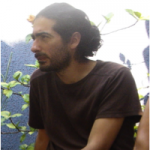Link to Pubmed [PMID] – 17652594
J Neurosci 2007 Jul; 27(30): 8040-5
During the shift from a parent-dependent child to a fully autonomous adult, peers take on a significant role in shaping the adolescent’s behavior. Peer-derived influences are not always positive, however. Here, we explore neural correlates of interindividual differences in the probability of resisting peer influence in early adolescence. Using functional magnetic resonance imaging, we found striking differences between 10-year-old children with high and low resistance to peer influence in their brain activity during observation of angry hand movements and angry facial expressions: compared with subjects with low resistance to peer influence, individuals with high resistance showed a highly coordinated brain activity in neural systems underlying perception of action and decision making. These findings suggest that the probability of resisting peer influence depends on neural interactions during observation of emotion-laden actions.

